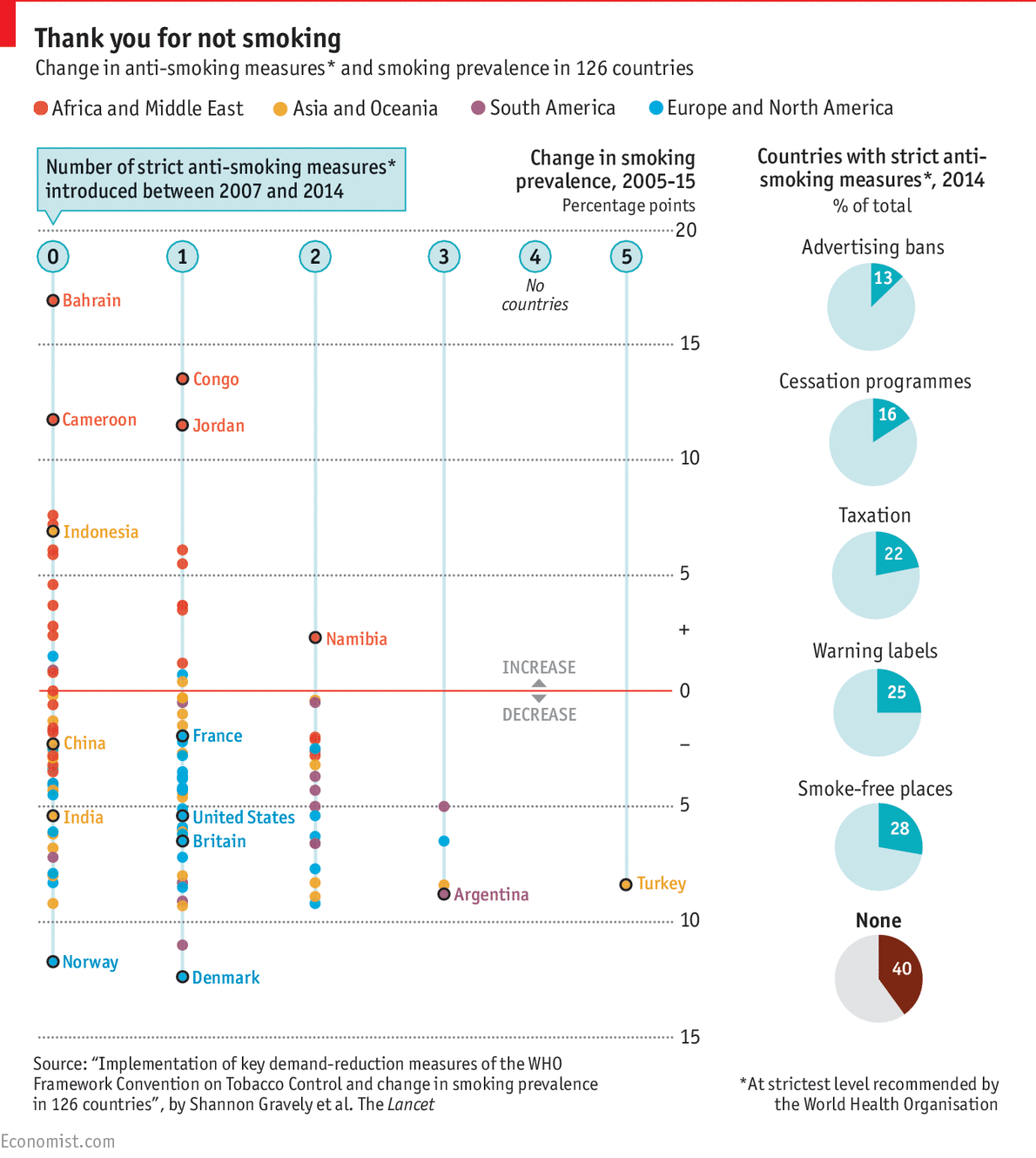MORE than 50 years after it became clear that smoking kills, the habit remains the leading preventable cause of death, with an annual toll of nearly 6m lives. A study published this week in the Lancet, a medical journal, helps to explain why it is so enduring.
 The study examined the link between smoking prevalence and measures to curb it in 126 countries. The authors considered five measures: taxation to raise cigarette prices, smoke-free places, cessation programmes, warning labels on cigarette packs and bans on tobacco advertising.
The study examined the link between smoking prevalence and measures to curb it in 126 countries. The authors considered five measures: taxation to raise cigarette prices, smoke-free places, cessation programmes, warning labels on cigarette packs and bans on tobacco advertising. They took stock of the countries which, between 2007 and 2014, had introduced these measures at the level of stringency recommended by the World Health Organisation (WHO). It advises, for example, that taxes comprise at least 75% of the retail price of the most popular brands of cigarettes, and that countries ban all forms of advertising, including billboards, promotional discounts and sponsorship of events by tobacco companies.
Countries that introduced more measures had greater declines in smoking between 2005 and 2015. In a country that introduced three such measures, for example, the number of smokers shrunk on average by about a fifth.
But the vast majority of countries have a long way to go. During the ten years the study considered, the average country saw only a modest reduction in smoking prevalence, from 25% to 22%. In 2014 each measure was in place in its strictest form in only about a quarter of countries or fewer. Turkey was the sole country to have followed the WHO's recommendations on all five measures. A policy of high taxation, the most effective way to reduce smoking quickly (especially in poor countries), is mostly limited to Europe. Few countries in Africa and the Middle East have instituted any of the five measures with the strictness demanded by the WHO. These two regions are home to 22 of the 24 countries in the study where smoking is on the rise.
The battle against smoking is far from being won. The Lancet study makes it clear that the governments of countries where smoking is still popular largely have themselves to blame.
Source: Economist.com

No comments:
Post a Comment